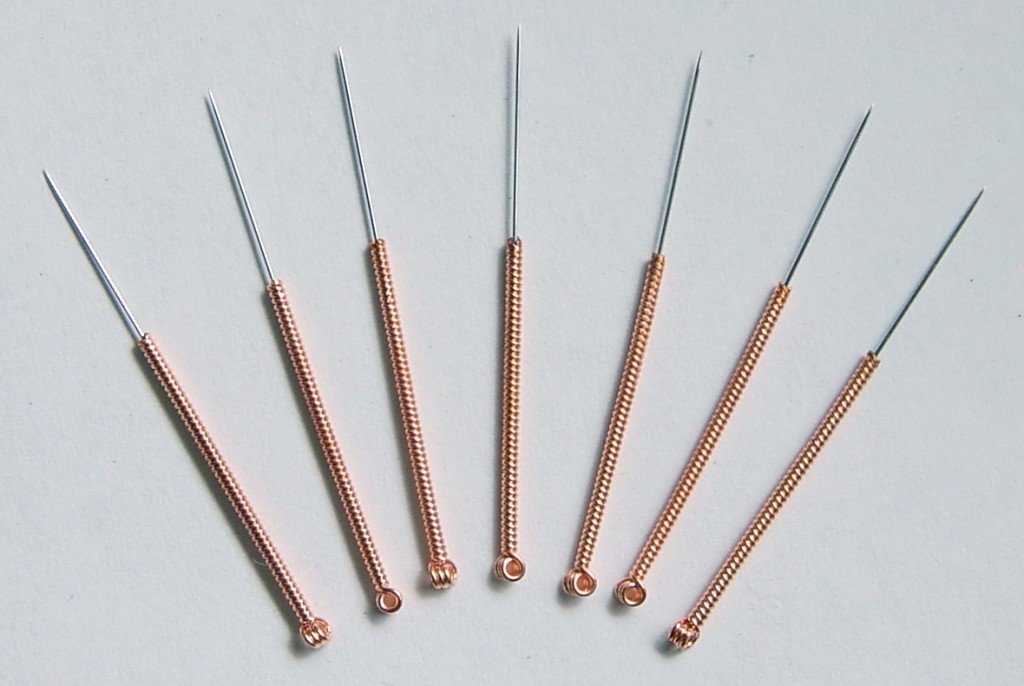Our Blog
5 Signs You Should See
an Acupuncturist for the First Time
Posted on March 17, 2016
Written by Yu Cheng Chen, D.C., L.Ac., Ph.D.

Acupuncture is a hot topic today in America. It seems everyone has an opinion on this form of “alternative” healing. But acupuncture looks like it’s here to stay, especially now that some insurance companies are beginning to cover it.
But what is acupuncture—and how do you know it’s right for you?
Acupuncture dates all the way back to at least 1600 B.C. Findings of acupuncture instruments in excavated Shang Period tombs prove that this is more than a “trendy” medical practice—people have been relying on this for over three millennia. And it is still just as vital today.
A staple of Traditional Chinese Medicine (TCM), acupuncture aims to balance the flow of life energy through pathways in the body (called meridians). This energy—commonly referred to as qi—is rebalanced through the shallow insertion of fine needles into the skin. This rebalancing of your qi relieves pain, discomfort, nausea, and other similar issues.
While we like to think of this as a form of “Eastern” medicine, many Western medicine professionals have now embraced the use of acupuncture. Doctors cite acupuncture’s ability to stimulate the body’s nerves and muscles, and release endorphins—a natural pain-killing chemical of the body.
But how exactly do you know if you should see an acupuncturist for the first time? Well, if you are experiencing any of the following five health problems, getting acupuncture treatment is a natural and safe solution.
1) Headaches and Migraines
If you get intense and severe headaches accompanied by other symptoms, like a sharp pain behind one ear or sensitivity to light, then you may be experiencing migraines. Instead of reaching for the Advil, you should consider acupuncture treatment first. Research has shown it can really work.
A study reported by the Canadian Medical Association Journal found that patients who received traditional acupuncture sessions had less migraine days for up to at least three months afterwards. Long story short, if migraines are slowing you down, receiving acupuncture is a preferred first-line treatment.
2) Low Back Pain
Roughly 80% of people experience low back pain at some point in their life, and for some, it is a chronic ailment that can be very debilitating. Acupuncture, by improving the flow of qi in the targeted area, can help reduce your lower back pain.
Additionally, treating lower back pain is where Eastern and Western medicine can overlap seamlessly. Seeing a chiropractor for hands-on spinal manipulation and receiving acupuncture treatment over the same period is a powerful pain-relieving combination.
3) Menstrual Pain
Headaches, constipation, vomiting, cramps, back pain and other discomforts--all commonly occur during a woman’s period. And they can be absolutely horrible. Thankfully, acupuncture has been known to decrease pain associated with periods, and even relieve stress.
So if dysmenorrhea (painful menstruation) becomes unbearable and you want a natural treatment, regular acupuncture sessions can provide long-term help. Acupuncture is designed to improve the movement of energy in your body, thus making menstruation go more smoothly.
4) Fibromyalgia (Muscular and Skeletal Stiffness)
Affecting roughly 5 million Americans, fibromyalgia is a disorder characterized by fatigue and musculoskeletal pain and stiffness. All sorts of additional symptoms can occur for those with fibromyalgia, making it a very unpleasant condition to have.
Research carried out at health centers in Spain discovered that individualized acupuncture treatment was helpful in relieving pain associated with fibromyalgia. Even more significant is that these positive effects lasted for up to one year.
5) Respiratory Issues
Having trouble breathing? Respiratory conditions ranging from bronchial asthma to chronic cough can be helped with acupuncture. If you have laryngitis, for instance, acupuncture works to lessen inflammation and clear that voice box so we can hear your lovely voice again.
Studies are proving the effectiveness of treating respiratory issues with acupuncture. One in particular noticed improvements in patients' lung capabilities after 12 weeks of acupuncture treatment. These results, which show acupuncture aids breathing, go right along with the traditional thought that acupuncture encourages the normal flow of qi throughout the body.
But wait, there’s more...
The range of acupuncture treatment is incredible. Even if you aren’t experiencing any of these five signs, acupuncture can still help. Over the years, acupuncture has been known to alleviate those suffering from drug addiction, digestive system disorders, immunity issues, sinus congestion, cardiovascular issues, and eye conditions as well.
With so many benefits to receiving acupuncture, it is certainly worth a shot. Going for the first time can set you on a path for better overall health.

